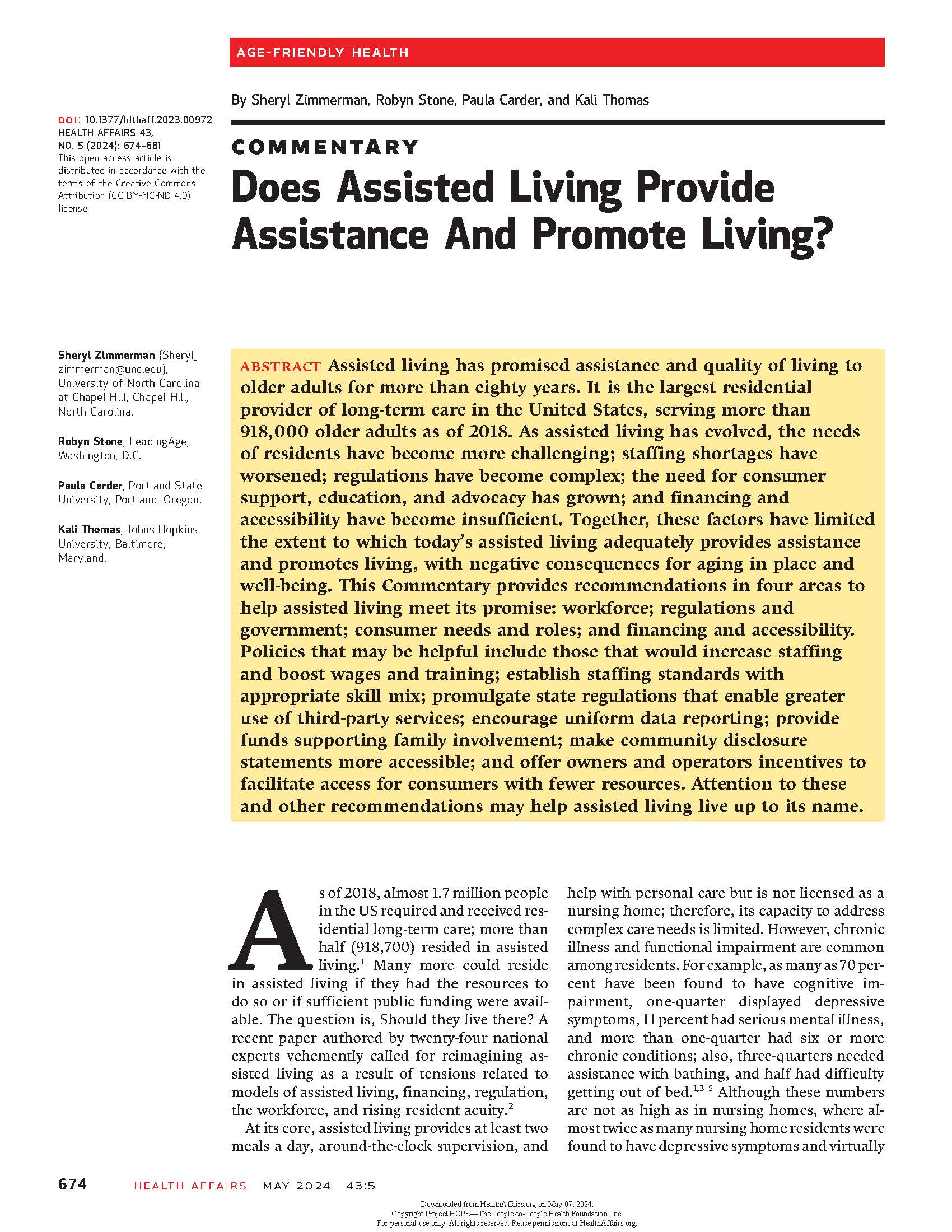Objectives
Psychotropic medications administered on an as-needed basis, often designated as pro re nata (or PRN, hereafter as-needed), can alleviate acute symptoms and facilitate deprescribing, although as-needed use is associated with negative outcomes such as polypharmacy and drug interactions. The aim of this study was to examine the extent to which PRN psychotropic medications are prescribed and administered to assisted living (AL) residents, overall and in relation to resident- and community-level characteristics.
Design
Cross-sectional study.
Setting and Participants
All AL residents and select staff in 250 AL communities in 7 states.
Methods
Data regarding prescribing and administration of 5 types of PRN psychotropic medications in the prior 7 days (antipsychotics, mood stabilizers and antiepileptics, antidepressants, anxiolytics/hypnotics, and cognitive enhancers) were abstracted and compared across resident and community characteristics.
Results
Prescribing of PRN psychotropics in AL is low (10.3%). Of prescribed PRN medications, 2.5% of residents were administered a PRN and 8% had PRN that was not administered in the previous 7 days. Anxiolytics were administered PRN more commonly compared with antipsychotics (2.0% vs 0.2%). Of all PRN psychotropic prescriptions (n = 1039), 70.5% had a written indication describing the reason for administration. Among PRN medications administered (n = 242), the proportion with an indication was lower (62.0%). PRN psychotropic medication prescribing was higher among residents with dementia and a psychiatric diagnosis, and in larger AL communities and those with a higher proportion of dementia care beds.
Conclusions and Implications
The prescribing and administration of PRN psychotropic medications in AL is relatively rare, although more common among residents with dementia. Emerging psychotropic medication policies should be expanded to address mental health care, anxiolytic/hypnotic use for residents living with dementia, PRN prescribing in chart review, and the use of detailed indications for PRN use, especially when medications are administered by unlicensed care staff.


